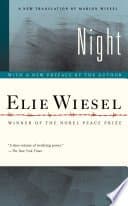Powerful Books to Read About the Holocaust
A comprehensive guide to impactful Holocaust literature that educates, provokes thought, and evokes empathy.

Books Featured in This Article
Explore the books discussed

Powerful Books to Read About the Holocaust
The Holocaust remains one of the most harrowing and poignant events in human history, and literature about this period has the ability to educate, provoke thought, and evoke empathy. If you're looking to delve deeper into this subject, here are some powerful books that offer various perspectives—both fiction and non-fiction—on the Holocaust.
Night by Elie Wiesel
Perhaps one of the most famous Holocaust memoirs, this book provides a firsthand account of the horrors Wiesel faced as a teenager in Auschwitz and Buchenwald.
"For the survivor who chooses to testify, it is clear: his duty is to bear witness for the dead and for the living." — Elie Wiesel
Elie Wiesel's Night is more than just a memoir; it is a stirring testament to the atrocities experienced during the Holocaust. Through his harrowing journey, Wiesel offers a brutally honest portrayal of life in the concentration camps, bringing readers face to face with the unimaginable. The visceral energy of Wiesel's writing ensures that the memories of the Holocaust live on, leaving a lasting impact on those who read it.
Maus by Art Spiegelman
This groundbreaking graphic novel tells the story of Spiegelman’s father, a Polish Jew and Holocaust survivor, through the use of anthropomorphic characters. It's a unique and impactful way to approach the topic.
"To die, it's easy. But you have to struggle for life." — Art Spiegelman
Maus revolutionized the way the Holocaust is depicted in literature. Spiegelman's unique approach of using mice to represent Jews and cats to represent Nazis presents the narrative in a way that is both deeply personal and universally understandable. The visuals effectively convey complex emotions and bring history alive in the most profound way.
Schindler's List by Thomas Keneally
This novel, which inspired the famous film, tells the story of Oskar Schindler, a German industrialist who saved the lives of more than a thousand Jewish refugees during the Holocaust.
"Whoever saves one life, saves the world entire." — Talmudic verse, highlighted in Schindler’s List
Schindler's List is not just a story of darkness but also of light. Thomas Keneally’s meticulous research and narrative skill bring Oskar Schindler's valorous acts to life, making this book an essential read for understanding the impact individuals can have, even in the darkest of times. The novel’s emotional depth and historical accuracy render it a compelling tribute to heroism.
Man's Search for Meaning by Viktor E. Frankl
A psychiatrist and Holocaust survivor, Frankl's account offers profound insights into survival, resilience, and mental health under the most trying circumstances.
"When we are no longer able to change a situation, we are challenged to change ourselves." — Viktor E. Frankl
Viktor Frankl's Man's Search for Meaning is a profound exploration of the human spirit. As a psychiatrist who survived the horrors of the concentration camps, Frankl integrates his experiences with psychological insights, making a compelling case for the strength of the human will to find meaning even amidst suffering. His philosophy not only provides solace but also a blueprint for resilience.
The Diary of a Young Girl by Anne Frank
This diary, kept by Anne Frank while she was in hiding with her family during the Nazi occupation of the Netherlands, remains one of the most read and discussed first-person accounts of the Holocaust.
"In spite of everything, I still believe that people are really good at heart." — Anne Frank
The Diary of a Young Girl by Anne Frank is a poignant reminder of the innocence lost during the Holocaust. Her words, penned in the secrecy of a hidden attic, resonate with hope, fear, and an enduring belief in humanity. As a personal reflection of a young girl amidst the brutality of war, Anne Frank’s diary transcends time and remains a vital testament to the human spirit.
The Enduring Impact of Holocaust Literature
These titles not only provide a deeper understanding of the historical events but also humanize the stories behind the statistics and serve as a powerful reminder of the resilience of the human spirit. Each book offers a unique perspective, ensuring that the memories of those who suffered and perished are never forgotten. In reading these powerful works, we honor their memory and reinforce the enduring lessons of history.
"Books are the carriers of civilization. Without books, history is silent, literature dumb, science crippled, thought and speculation at a standstill." — Barbara W. Tuchman
Key Takeaways
Pros
- Provides a deeper understanding of the Holocaust through personal narratives and first-hand accounts.
- Humanizes the stories behind the statistics, highlighting individual experiences and resilience.
- Each book offers a unique perspective, ensuring a comprehensive understanding of the Holocaust.
- Books like 'Maus' and 'The Diary of a Young Girl' present innovative and relatable ways to connect with the audience.
- Educational value in understanding the historical events and emotional depth of the Holocaust.
- Facilitates empathy and reflection on human nature and the consequences of hatred and intolerance.
Cons
- The content can be emotionally heavy and distressing for some readers.
- May evoke strong emotional responses that can be challenging to cope with.
- The graphic nature of some narratives, especially in 'Night' and 'Maus,' can be disturbing.
- Readers may need to take breaks or seek support when dealing with the intense and traumatic subject matter.
Frequently Asked Questions
About the Author

Book Junkie
Your go-to source for book reviews and recommendations.
You Might Also Like
Related Books
Related Articles

Transformative Reads for Teens: Navigating Life at 17
Discover the power of literature with our curated list of essential books for 17-year-olds. From fiction that inspires self-discovery to empowering non-fiction, these reads provide guidance and comfort during the tumultuous teen years. Uncover the wisdom

Unlocking the Secrets of Dark Academia: A Must-Read List
Dive into the enchanting realm of dark academia with our curated list of gripping novels that explore obsession, psychological intricacies, and haunting atmospheres. Perfect for readers seeking literary adventures akin to films like *Kill Your Darlings* a

Unlocking New Chapters: Inspiring Books for Readers in Their 50s
Discover a curated list of transformative fiction and non-fiction books designed for readers in their 50s. Embrace change, find inspiration, and celebrate life's possibilities with these insightful reads.

Unlocking the Secrets of Monastic Life: 12 Novels Rich in Religious Intrigue
Dive into the captivating world of ancient monasteries and religious power struggles through our curated selection of novels. Discover tales that will enrich your understanding of history while satisfying your love for literary intrigue.



